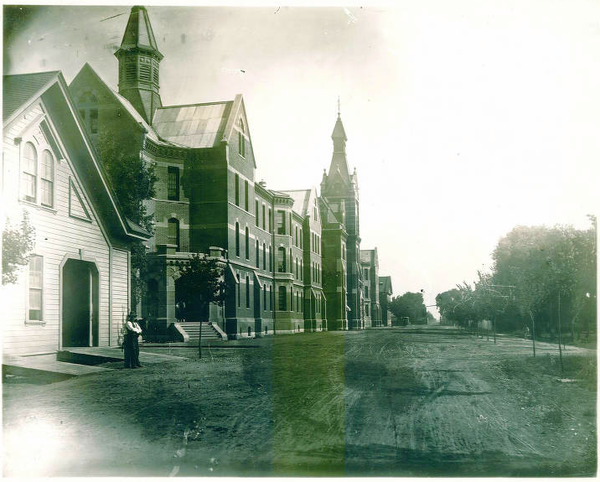Difference between revisions of "Portal:Featured Image Of The Week"
From Asylum Projects
M-Explorer (talk | contribs) |
M-Explorer (talk | contribs) |
||
| (464 intermediate revisions by the same user not shown) | |||
| Line 1: | Line 1: | ||
{{FIformat | {{FIformat | ||
| − | |Image= | + | |Image= CAstockton14.png |
| − | |Width= | + | |Width= 600px |
| − | |Body= [[ | + | |Body= Constructed as the [[Stockton State Hospital|Insane Asylum of California at Stockton]] in 1853, the complex was situated on 100 acres (0.40 km2) of land donated by Captain Weber. The legislature at the time felt that existing hospitals were incapable of caring for the large numbers of people who suffered from mental and emotional conditions as a result of the Gold Rush, and authorized the creation of the first public mental health hospital in California. The hospital is one of the oldest in the west, and was notable for its progressive forms of treatment. The hospital is #1016 on the Office of Historic Preservation's California Historical Landmark list, and today is home to California State University Stanislaus. |
}} | }} | ||
Latest revision as of 04:53, 28 April 2024
Featured Image Of The Week
Constructed as the Insane Asylum of California at Stockton in 1853, the complex was situated on 100 acres (0.40 km2) of land donated by Captain Weber. The legislature at the time felt that existing hospitals were incapable of caring for the large numbers of people who suffered from mental and emotional conditions as a result of the Gold Rush, and authorized the creation of the first public mental health hospital in California. The hospital is one of the oldest in the west, and was notable for its progressive forms of treatment. The hospital is #1016 on the Office of Historic Preservation's California Historical Landmark list, and today is home to California State University Stanislaus.
